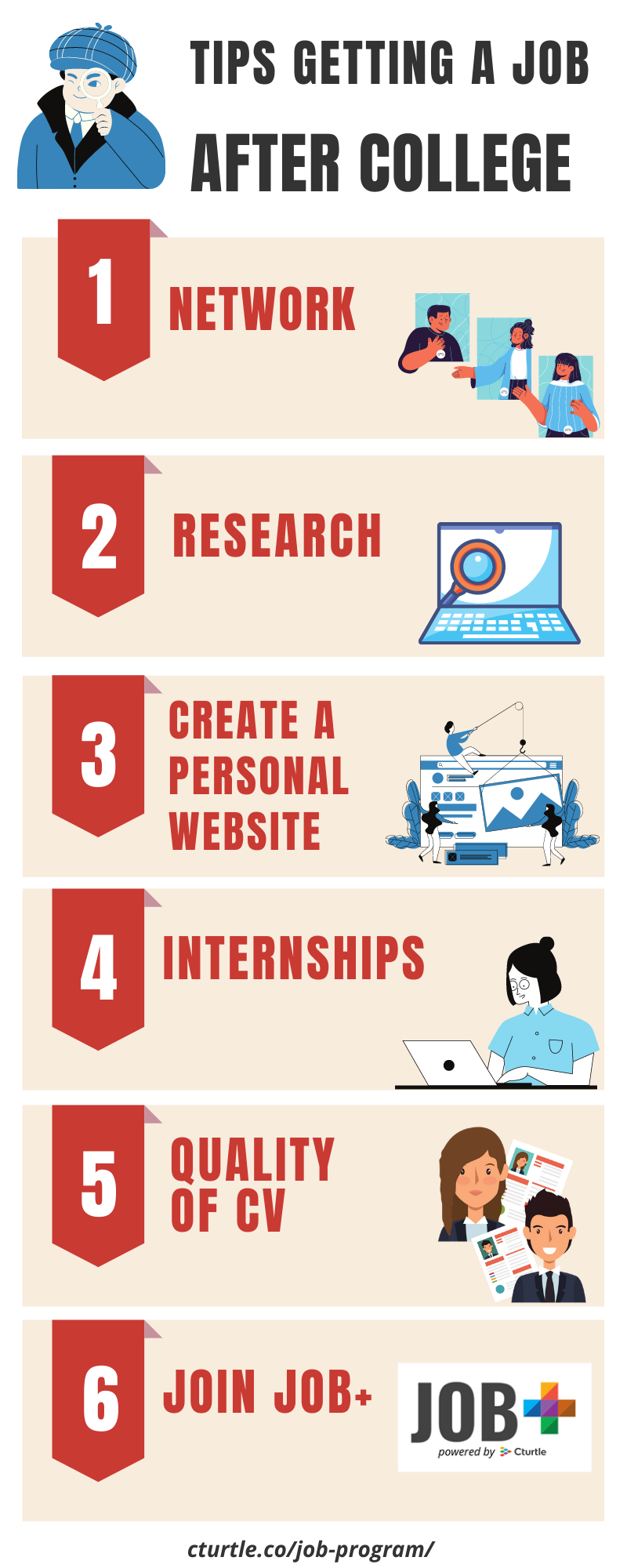Obtaining employment after college is often difficult and the reasons for this are vast. Although some individuals fail to do their part, other times the situation is out of their control. Some graduates accept the first job they find without realizing the potential impact it may have on their future.
In this article, we discuss 7 biggest challenges of graduates to get a job after college, list some reasons why and offer a list of tips to help.
Why is it so hard to get a job after college?
Across the world, more students than ever earn degrees each year. Class sizes are on a steady increase. Tuition prices share the same increase, but it fails to dissuade many high school graduates from entering college. Because of this significant increase, the primary reason why graduates find obtaining employment difficult is the sheer amount of competition. There is an incredible amount of graduates entering their fields each year. This is especially true for technical and medical industries.
Why the first job matters
The first job a graduate takes after college often has a significant impact on the rest of their career. Therefore, this become one of the biggest struggles of graduates. For example, graduates who obtain a role that has little to do with their area of study (or doesn’t require a degree at all) are more likely to stay in either it or a related role for the next five years. Individuals find it difficult to deviate from that path once chosen, decreasing their odds of obtaining employment in their field.
Potential reasons why graduates struggle
From local economic issues to undervalued majors, there are many reasons why graduates struggle in their job search. Personal reasons aside, there are greater causes that face many students and recent graduates such as:
1. High competition
With so many students in college, the competition for jobs on graduation day is fiercer than ever. Some industries experience more job competition than others. It becomes harder for individual graduates to stand out, even with excellent scores.

2. Little work experience
Not all students work their way through college. Those that do often work outside of their field of expertise. Many job postings require a decent level of experience, whether it advertises an entry-level position or not. After college, many graduates find difficulty overcoming this requirement.

3. Few or no skills
Along with experience comes valuable skills, some of which individuals only learn while on the job. Those will little work experience enter the job market with few skills listed on their resume. Employers seek specific skills when fulfilling their roles. They ignore resumes without them.

4. Little networking
Exchanging information and common interests with individuals often lead to work opportunities. Without work experience, however, individuals have few networking options. Some colleges and universities host networking events, but participation is up to the individual student.

5. Lack of follow up
Many recent graduates often underestimate the power of following up. After completing an interview process, many organizations place greater consideration on those who follow up. Students find themselves in situations where they place all of their attention onto the next opportunity rather than sending a thank-you email to the previous one.

6. Lack of communication skills
Many of the items in this list occur as a result of the same issue: little work experience. A lack of communication skills often falls back to that same fact. Jobs, no matter how small, offer valuable educational scenarios in communication. Whether it’s talking to a customer or emailing a supervisor, each communicative task takes practice to get right.

7. Uncertainty with major
Upon graduation, some students discover they have no greater interest in their majors. Others discover a severe lack of job opportunities within their chosen field. At a young age, students face a critical decision that has a significant impact on the rest of their lives. Some choose wisely while others simply need more time.

Tips for getting a job after college
Those students who struggle in their job search have hope, however. Correcting a few minor mistakes often leads to a greater job outlook. Consider the following list of tips when considering a job after college:

1. Network
Networking is one of the most vital components of a successful job search. As mentioned before, take advantage of networking events and other opportunities that place you in front of industry professionals. A friendly introduction is sometimes all it takes to obtain a job later on. Such events are also prime areas to exchange business cards. When jobs open, employers from these events may reach out.
2. Research
Before finalizing a decision on a major, prospective students research their field of interest. The internet hosts a wide variety of sources that answer any questions they have. For example, a student interested in nursing discovers that it’s highly competitive in his home state. This influences his decision, sending him in a more viable direction. Research benefits graduates as well. For example, a graduate seeking the role of a Paleontologist finds that only a small handful of universities offer doctorate programs within their field. This knowledge better prepares her for the future and influences her ultimate decision.
3. Create a personal website
In the digital age, there’s no better way for an individual to sell themselves than creating a personal website. Professionals in almost every industry find great benefit in building a site. They host portfolios and resumes and provide an informative peek into what an individual is like. Personal websites answer many of the questions managers hold for interviews, putting these individuals ahead of others.
Maybe you’re interested in:
How to write a LinkedIn profile summary that gets noticed
4. Apply to internships
Most fields have some sort of internship opportunities. They act as valuable sources of education and experience during and after college. Some educational institutions host their own internships as part of their curriculum. Researching their chosen field allows students to discover possibilities such as this, better preparing them for their educational journey.
5. Enhance the resume
A common factor among many graduates struggling in their job search is the quality of their resume. Even the greatest education and experience fail to stand out with a poor resume. Creative industries, in particular, prefer resumes with color and style, showing off the character of the applicant. Other industries prefer single-page resumes that list only the most important information. With extra consideration for research, both students and graduates create more effective resumes.
Maybe you’re interested in:
The Top 25 Words to Describe Yourself on Your CV
6. Join JOB+
The JOB+ Internship and Employment Program is designed to build your experience and skills and to get you the very best full-time paid job available.
JOB+ guarantees students and graduates a year internship in the country or career field of their choice, access to a range of micro-credential courses, personal training by the best career coaches in the world, and introductions to hiring managers at companies around the world who hire graduates.
Since 2016 JOB+ has helped over 50,000 international students and graduates to meet employers and get jobs globally.
Here are 6 tips to overcome graduates struggles, if you have another tip, please comment below!
Source indeed.com






Recent Comments